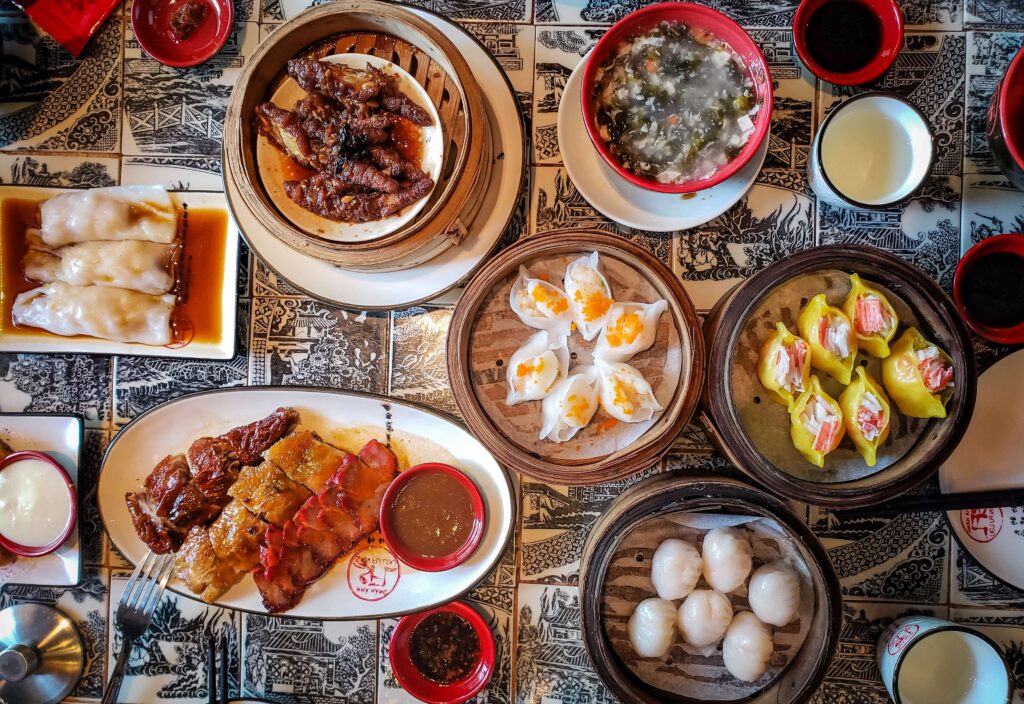Eating is more than just a way to satisfy hunger; it’s an integral part of our daily routine that significantly influences our mental and emotional health. This profound influence stems from the brain-gut axis, a complex two-way system that brings a new depth to the saying “you are what you eat”.
Gut health is mental health – understanding this doesn’t require a science degree. It’s as simple as noticing how certain foods can lift our spirits while others make us feel lethargic. By tuning in to our brain and gut, we can eat well and nourish not just our physical bodies but only our mental states.

So, how can we foster a dialogue between our brain and gut? It starts with nurturing a good relationship with food. A bond that, according to Intellect’s clinical psychologist Linda Rinn, “is like any other relationship that does take time and practice.”
Except not all relationships with food are healthy, and a negative association can spiral into stress, anxiety, and guilt. This brings us to the next point.
Why diets often fail
Building a healthier relationship with food requires us to step beyond the fleeting attraction of fads. The failure of countless diets can be attributed to their focus on quick fixes and weight-loss, whereas true wellness comes from a shift from short-term, weight-focused goals to long-term, health-centred lifestyles.
| Weight-focused diet | Health-focused diet |
| They consider themselves unhealthy based on BMI alone and judge their success based only on what they weigh. | They consider themselves unhealthy, but focus on health-promoting behaviours related to food, exercise, and sleep. |
| They lose weight briefly, but the diet is so restrictive, they can’t keep it up forever. | Their body weight might change, but this is a bonus rather than a primary focus. |
| The restrictive nature of their diet exacerbates issues around food and body image. | They feel better, are happier, and bypass possible side effects of dieting. |
Weight-focused diets often involve labelling foods as “good” and “bad”, which can be especially counter effective.
“Research has shown that it leads us to think about that (forbidden) food much more and we’re much more likely to eat it,” Rinn shares.
Likewise, the ubiquitous cheat day has been proven to backfire, as these meals tend to be much larger than usual. Giving yourself a “free pass” increases the likelihood of binge-eating and messing up our relationships with food. So while we should eat more of certain foods and avoid others, being realistic is key.

“From a psychological standpoint, demonising food is not the answer to accomplishing our goals,” Rinn says, adding that it’s about redefining the narrative.
“We want to shift from a ‘blame’ frame to an ‘aim’ frame,” where we cultivate a positive mindset around dietary choices, forgiving lapses, and shifting the focus to holistic nourishment.
3 tips to eat well and feel good
1. Proximity effect: Keep unhealthy food at bay
Ever had a craving that melted away because it would require a 15-minute walk under a hot sun? That’s the proximity effect at work. Studies show we’re less likely to grab a snack if it requires more effort, such as a stretch or climb. Funny enough, this trick works beyond our favourite treats, helping us moderate our food intake effortlessly.
To avoid mindless munching, Rinn advises storing those chips or sweets out of easy reach, perhaps on a top shelf, so you would need to get a chair to reach them. Give your kitchen or personal pantry a slight rearrangement and reign in the snack-attacks without a battle of wills.
2. Buffet effect: Navigate variety with restrain
The buffet effect is why you can always make room for dessert, even after a big meal. Basically, when we’re faced with a variety of foods, we tend to eat more. It’s like our stomach has separate compartments for salty, sweet, and sour foods, and our appetite almost “resets” when presented with a new palate. (In an experiment, participants who were served four courses of the same food consumed around 60% less calories than the ones who were served four different dishes.)

This happens a lot during holidays or family get-togethers where there’s a big spread of dishes (and just as many dining companions egging you on).
“You don’t have to beat yourself up if you eat more during certain periods,” Rinn advises, adding that “food guilt is not a helpful emotion we want in our life.”
To avoid overeating, Linda suggests a simple trick: choose three items that you really enjoy and stick to those during the meal. This way, you can enjoy your food without going overboard.
3. Emotional eating: Identify your triggers
After a stressful day at work, it’s not uncommon to seek comfort in the arms of a chocolate bar or a savoury snack. This is often a sign of emotional eating, a practice where we use food as a means to cope with a swirl of emotions, from boredom to stress.
“Emotional eating, unfortunately, doesn’t actually fix emotional problems,” Rinn quips. While a small indulgence can sometimes act as a quick pick-me-up, relying on food to alleviate emotional distress can often leave us feeling unsatisfied in the long run.
To foster a healthier relationship with food, we should aim to recognise and address the emotional triggers that often steer us towards the refrigerator. Maybe you’ve been stressed out at work and want to treat yourself over the weekend. Or perhaps you’re losing control over a certain aspect of your life and are channelling your compulsiveness into ordering whatever you fancy on a food delivery platform.

In situations where we may mistake nourishment for solace, Rinn recommends taking a deep breath and putting off eating for five minutes.
“Emotional eating is automatic and, a lot of times, really mindless. But if we can take a moment to pause and reflect, it’ll give ourselves the opportunity to make a different decision,” she shares.
Next, distinguish between physical and emotional hunger.
| Physical hunger | Emotional hunger |
| Often comes on gradually | Often comes on suddenly |
| Can usually wait | Can feel like it needs to be satisfied instantly |
| Open to options | Tends to crave specific comfort foods |
| Doesn’t typically make you feel bad about yourself | Usually triggers feelings of guilt, powerlessness, and shame |
If you determine that you’re experiencing emotional hunger, seek to understand why by consulting a coach or journaling, replace eating with healthy coping mechanisms, and reward yourself (in non-food related ways) for not succumbing to the slippery slope.
Unlock holistic wellbeing with Intellect
Making informed food choices doesn’t only help maintain a healthy body, but it also nurtures a mind that is at peace and in harmony with your lifestyle choices. Doing this well calls for an integration of the mental, emotional, and physical spheres, which is why Intellect has teamed up with Alive Nutrition Consultancy.
Alive Nutrition Consultancy offers evidence-based nutrition solutions tailored to the health and wellness goals of individuals and organizations. In addition to educational programs and personalized consultations, clients can enjoy interactive experiences like supermarket tours, hawker trails, and live cooking demonstrations that bring nutrition theories to life.
Learn how your workforce can achieve holistic well-being by booking a demo here.








